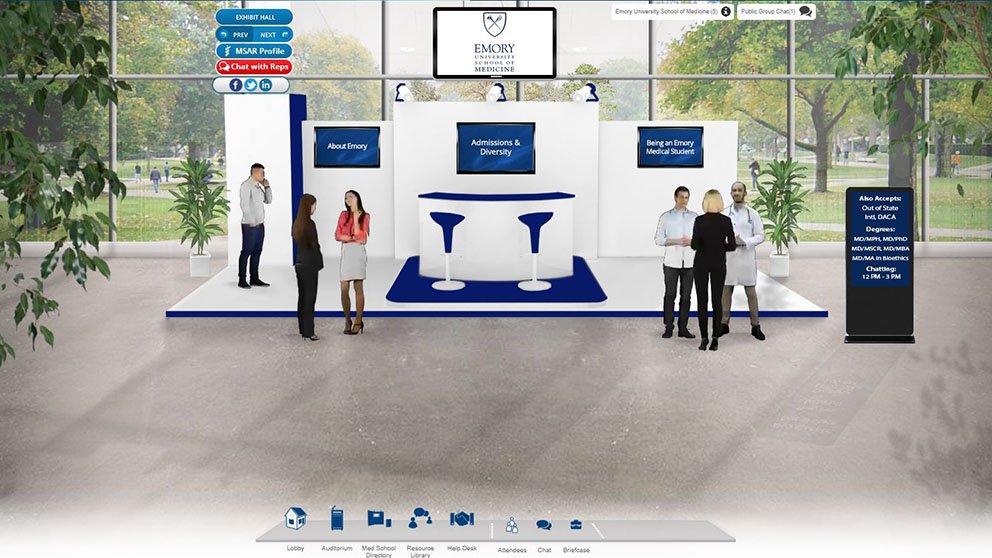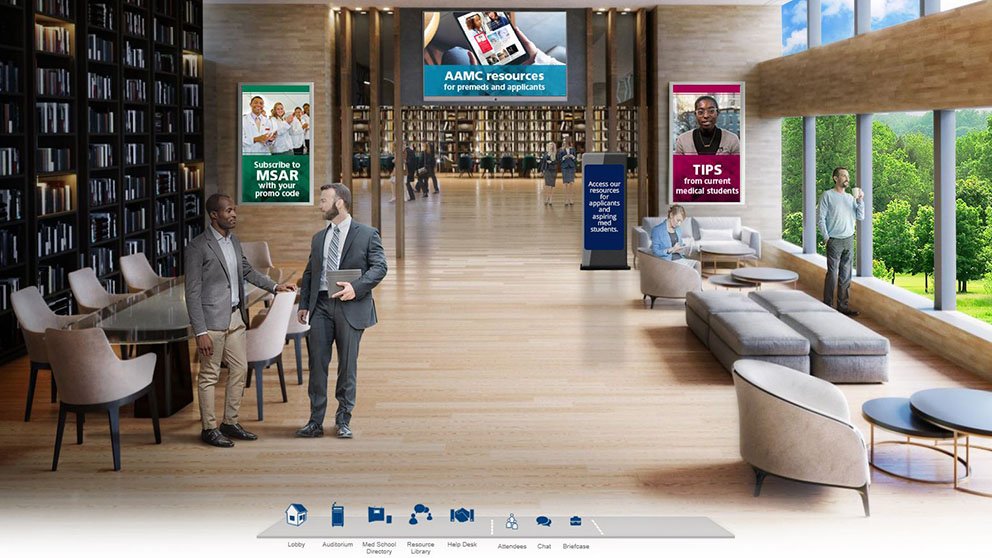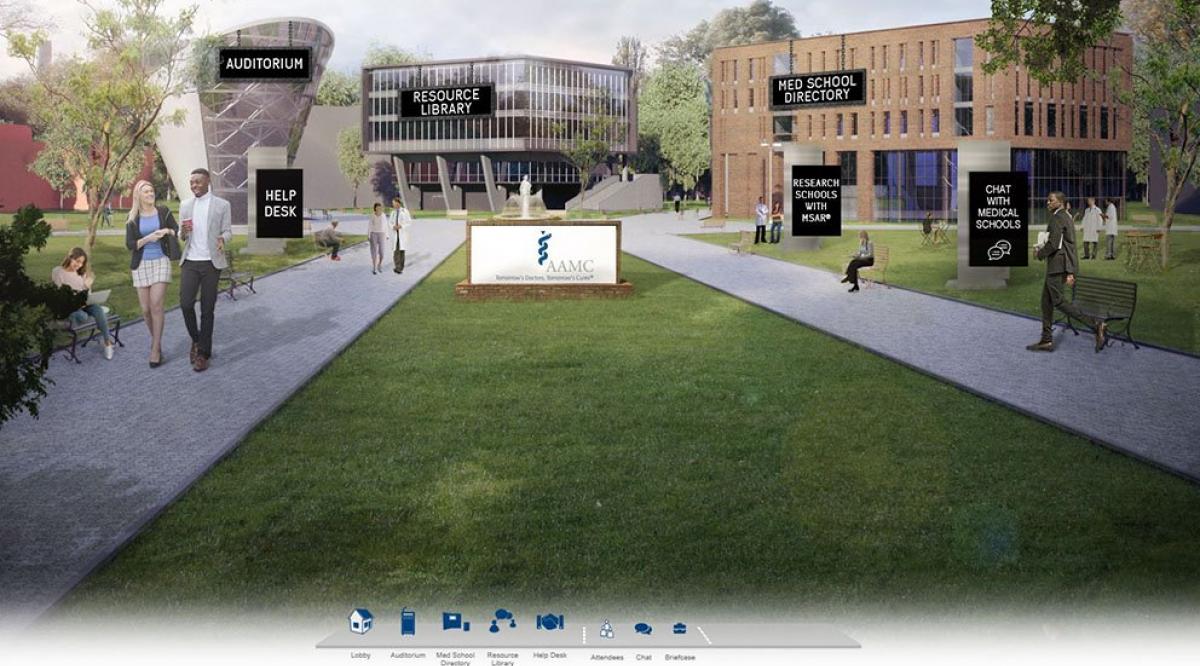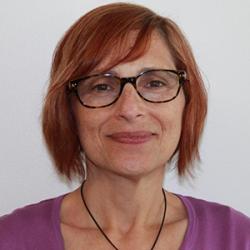Private chats with admissions experts. Tips for preparing for the MCAT® exam. Information from 70 schools. All this and more drew record numbers of aspiring doctors to the AAMC Virtual Medical School Fair. Visitors can still check out hundreds of in-depth resources until March 21.
Eric Johnson has some pretty profound reasons for wanting to be a doctor. Born in Paraguay and adopted as a baby by a California couple, he says he wants to fulfill the legacy of his parents’ compassion. “My [birth] mother made the hardest decision to give me up so I could have a life, I could have a voice,” he explains, “and my [adoptive] parents are the kindest people I’ve ever met.” Medicine, he believes, would allow him to “dedicate myself to a career of compassion.”
Johnson hopes to one day serve some of the nation’s most vulnerable patients — and he’s looking for a medical school that will help him achieve that dream. Now, he says, he’s delighted to be one step closer to finding that school thanks to “some incredible conversations” at the AAMC Virtual Medical School Fair.
Johnson is one of over 9,250 fair attendees who explored their options among 70 schools on Feb. 21. Now in its fourth year, the online event saves time, travel, money, and logistical logjams for both students and schools.
With just a few quick clicks, participants can watch videos, chat with admissions reps, get guidance from AAMC staff, attend live sessions on topics like preparing for the MCAT® exam, and more. All that (minus the live chats) is still available until March 21 at aamc.org/virtualfair.
“Not everyone goes to a school that hosts prehealth fairs, not everyone even is still in school, and not everyone has access to a premed advisor. It’s very important to try to offer the same opportunity to every single person who aspires to a career in medicine.”
Tami Levin
AAMC Director of Premedical and Applicant Resources
This year’s record-breaking fair drew many aspiring doctors from communities that are traditionally underrepresented in medicine. More than 2,100 participants self-identified as black or African-American, for example, according to Rebecca Rice, AAMC director of services outreach.

In fact, a key goal for the fair is to help level the playing field for prospective students, notes Tami Levin, AAMC director of premedical and applicant resources.
“Not everyone attends a school that hosts prehealth fairs, not everyone even is still in school, and not everyone has access to a premed advisor,” she says. “It’s very important to us to try to offer the same opportunity to every single person who aspires to a career in medicine.”
And the fair helps level the field for schools as well. “Some schools don’t have the ability to attend more than regional fairs,” says Levin. “But at the virtual fair, they can present not only to a national but an international audience. Those schools need the same opportunities as schools with more means, and students need the opportunity to hear about those schools.”
From the comfort of home
Students say they’re thrilled that they don’t have to take time off from work or school, pack “appropriate” outfits, or pay hefty travel bills.
Instead, they can simply reach for a computer, tablet, or mobile phone and check out a “building” full of medical school booths sorted by geographic region. They can visit school kiosks with content on student life, curricula, admissions requirements, and more. And they can pop review-worthy materials into their virtual briefcases.
Attendees don’t seem to simply dabble, either. Average time in the fair is an impressive 2 hours and 55 minutes.
“It’s from the comfort of your home — or school, or office — so people could feel more relaxed and unjudged while asking questions.”
Eric Johnson
Johnson says he put his time to good use. “Because this is virtual, I could essentially be in more than one place at a time. On one computer tab, I’d be sending out questions while in another tab I could be in a group chat with peer health advisors. I would copy and paste the same question to several med schools and come back later to find my answer,” he says.
He also found the virtual format less intimidating than in-person events. “The high-stakes, the scariness was removed from the equation,” he says. “It’s from the comfort of your home — or school, or office — so people could feel more relaxed and unjudged while asking questions. I think that was really significant.”
Fatima Usman, who will graduate from the University of Northern British Columbia next year, says she’s grateful to find so much information all in one place. A native of Nigeria, Usman hopes to study medicine in the United States or Canada. She says she picked up a lot of tips that wouldn’t have occurred to her, like one session’s suggestion to ask schools about graduates' average debt.
Usman particularly appreciated the opportunity to connect with current medical students. “They’re so genuine and so excited [about their schools],” she says. “Even though we’re just typing in chats, you can feel it.”
In fact, she plans to keep in touch with one student at a school she might like to attend. And, she adds, “I hopefully see myself doing that one day, being a mentor who can provide help to other aspiring physicians.”
High grades from schools
Schools say they value the virtual fair, too.
Kelsy Harris works in the office of admissions, student affairs, and outreach at California North State University College of Medicine — which will graduate its very first class of physicians this May.

“We’re fairly new and a pretty small campus, so outreach is really important to us,” says Harris. “While we were doing the fair, we got a lot of emails, and people signed up for campus tours. We got interest from people who are from different states, different countries. That’s so beneficial for us.”
And although she and only one other colleague managed a booth that attracted over 1,300 participants, she says the online format worked well.
“This is such an amazing way to reach students, to offer quick access to information. It’s so much more direct than their emailing and waiting for a reply,” she notes.
“We’re fairly new and a pretty small campus. … We got interest from people who are from different states, different countries. That’s so beneficial for us.”
Kelsy Harris
California North State University College of Medicine
Across the country, at Emory University School of Medicine in Atlanta, Georgia, associate director for admissions June Eddingfield says she appreciates the opportunity to help aspiring physicians. “We get a lot of questions like, ‘What kind of clinical experience, shadowing do you prefer?’ They seem to be looking to check off just the right box. I encourage them to get out of that mindset. Instead, I tell them, ‘Do the things that appeal to you. Be true to yourself. Follow your passions.’”
Looking ahead
As fair organizers prepare for next year’s event, they look back at this year’s chat transcripts, video views, and more to identify possible gaps and future directions.
Rice says one current hot topic is how future applicants can get good premed experiences.
“That’s one of the biggest questions. ‘Where can I get an internship? How can I get experience?’ With the HIPAA laws making shadowing more difficult, students need other opportunities,” she says. “We’re looking into a hall dedicated to those kinds of experiences because that’s a big concern.”
Meanwhile, Johnson is excited to look ahead to his possible future as a physician.
Asked about a key takeaway from the fair, he says, “I definitely learned something I don’t think premed students realize, which is that med schools want us as much as we want them. Admissions staff are eager to give us information. They say things like, ‘You sound talented. You should come to our school.’ So much of this is hypercompetitive, you sometimes feel like you’ll never get in. I see things a little differently now, and that never would have happened if I didn’t participate in the fair.”

